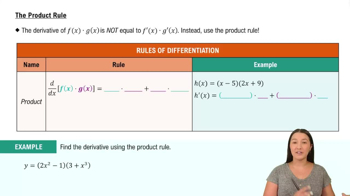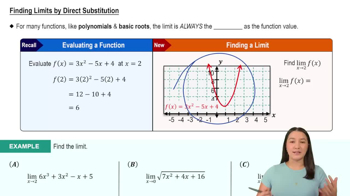Calculate the following limits using the factorization formula x^n−a^n=(x−a)(x^n−1+ax^n−2+a^2x^n−3+⋯+a^n−2x+a^n−1), where n is a positive integer and a is a real number.
lim x→1 x^6 − 1 / x − 1
 Verified step by step guidance
Verified step by step guidance Verified video answer for a similar problem:
Verified video answer for a similar problem:



 5:21m
5:21mMaster Finding Limits by Direct Substitution with a bite sized video explanation from Patrick
Start learning